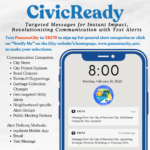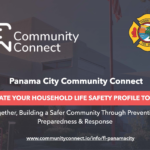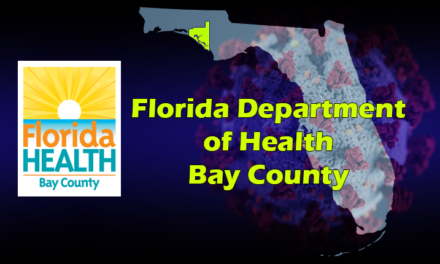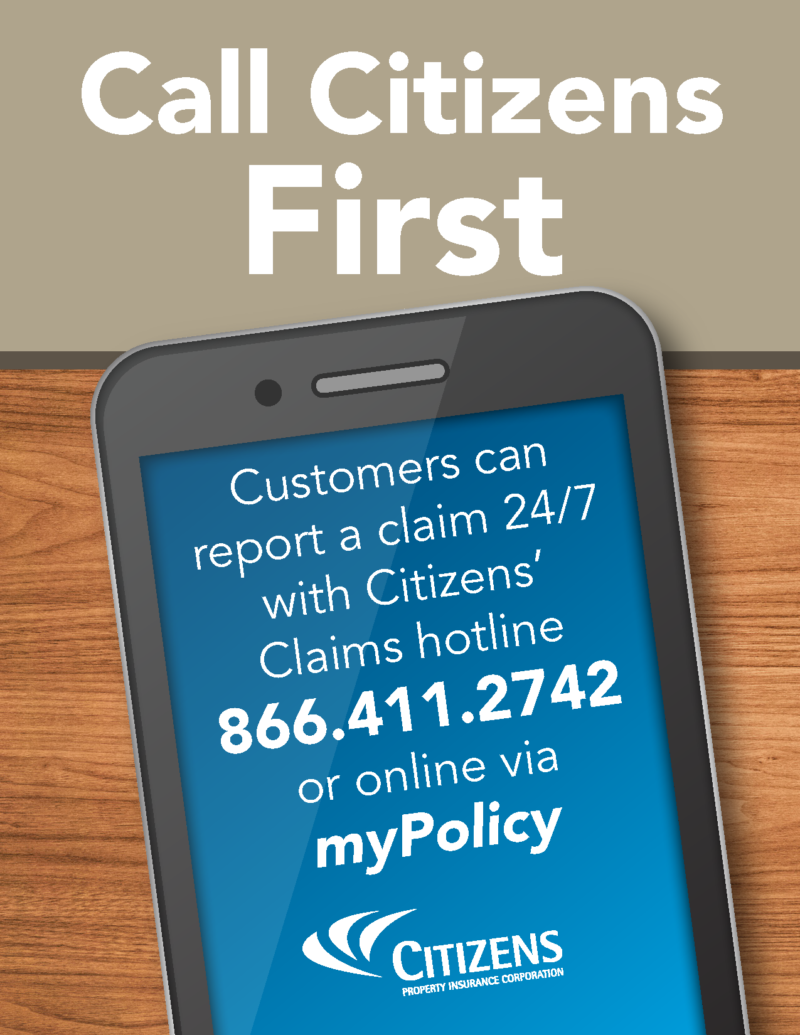
Gulf County Announces First Positive Case of COVID-19
Port St. Joe, Florida – The Florida Department of Health in Gulf County (FDOH-Gulf) has received notification of a positive case of COVID-19 in Gulf County.
The individual is a 42-year-old female who is a Gulf County resident. This is a travel related case, directly linked to a contact with international travel. She is isolated and will continue to remain isolated until cleared by public health officials. This is Gulf County’s first COVID-19 case.
“We are working closely with the patient, close contacts and healthcare providers to ensure proper precautions are being taken to prevent the spread of the virus,” said Sarah Hinds, Administrator for the Florida Department of Health in Franklin and Gulf Counties. “The individual followed CDC guidance related to travel and self- isolation. The patient self-isolated in her home and stayed home prior to having any symptoms. I want to stress that social distancing is key to protect those who are most at risk – individuals over 65, individuals with compromised immune systems and individuals with underlying medical conditions.”
Public health efforts at this time are focused concurrently on containing the spread of this virus and mitigating the impact of this virus. A technique called contact tracing is frequently used during such efforts. Contact tracing tracks and prevents the spread of disease. Infectious disease specialists work to find everyone who has been in contact with the positive case. Persons identified to be at-risk through the contact tracing process are interviewed, evaluated, and educated on their risk factors and what to do.
DOH-Gulf encourages our residents and visitors to take steps to protect themselves from respiratory illnesses such as COVID-19. Everyone can do their part to help. Your cooperation is integral to the ongoing public health response to try to slow the spread of this virus.
What should I do if I (or someone in my family) might have COVID-19?
If you think you need to be tested for COVID-19, call your health care provider and tell them about your symptoms and your travel history or exposure to a COVID-19 patient. It is important to call ahead before visiting your health care provider. Offices must take proper steps to avoid further spread of COVID-19 when a concerned patient arrives for a medical evaluation. If you are without health insurance or a health care provider, please contact your county health department so the health department can coordinate your medical evaluation and testing.
- To be prioritized for testing, patients must meet CDC criteria, which evaluates a combination of symptoms and risk factors. These samples will be sent to the closest
- If you don’t meet priority criteria, you can discuss with your provider about possibly getting tested at a commercial laboratory (e.g. LabCorp or Quest).
What should I do if I recently traveled to an area with an outbreak of COVID-19?
If you are returning from an area with an outbreak of COVID-19, the CDC is recommending you self-isolate for 14 days immediately upon returning from your travels, even if asymptomatic (no symptoms). Follow the CDC steps to help protect other people in your home and community: https://www.cdc.gov/coronavirus/2019-ncov/if-you- are-sick/steps-when-sick.html
If you develop a fever and symptoms of respiratory illness, such as cough or shortness of breath during those 14 days, contact your health care professional and mention your recent travel. Your provider will work with the health department to determine if you need to be tested for COVID-19. If you have had close contact with someone showing these symptoms who has recently traveled from an impacted area, you should call a health care professional and mention your close contact and their recent travel.
How long does it take to recover from COVID-19?
Most individuals who test positive for COVID-19 are able to recover at home. Individuals will be asked to remain at home, except to get medical care. Stay in touch with your doctor if you feel worse or you think it is an emergency. People with COVID-19 who have stayed home can stop home isolation under the following conditions:
- You have had no fever for at least 72 hours (that is three full days of no fever without the use medicine that reduces fevers)
AND
- Other symptoms have improved (for example, when your cough or shortness of breath have improved) AND
- At least 7 days have passed since your symptoms first appeared
A test-based strategy is preferred for discontinuation of transmission-based precautions for patients who are hospitalized or severely immunocompromised or being transferred to a long-term care or assisted living facility.
About COVID-19
COVID-19 transmission is more commonly spread from person to person through small droplets from the nose or mouth, including when an individual coughs or sneezes. This is why social distancing and keeping at least 6 feet between you and other people is so important. A person can get COVID-19 by touching droplets that can land on objects and surfaces and then touching their eyes, nose or mouth, although, this is a less common mode of transmission. The vast majority of cases have come from close, sustained contact with an individual with COVID-19.
Symptoms of COVID-19 are fever, cough and shortness of breath. Symptoms may appear in as few as two days or as many as 14 days following exposure. Most people recover from the COVID-19 without needing special treatment. The elderly and those with underlying medical problems like high blood pressure, heart problems
and diabetes, and those with compromised immune systems are more likely to develop serious illness. There is currently no vaccine to prevent COVID-19. The best way to prevent illness is to avoid being exposed to this virus. As a reminder, the Department always recommends everyday preventive actions to help impede the spread of respiratory diseases, including:
- Avoiding close contact with people who are sick;
- Staying home when you are sick and avoiding contact with persons in poor health;
- Avoiding touching your eyes, nose and mouth;
- Covering your cough or sneeze with a tissue, then disposing of the tissue;
- Washing your hands often with soap and water for at least 20 seconds, especially after going to the bathroom,
before eating, after blowing your nose, coughing or sneezing;
– If soap and water are not readily available, use an alcohol-based hand sanitizer with at least 60% alcohol. Always wash hands with soap and water if hands are visibly dirty; and
- Cleaning and disinfecting frequently touched objects and surfaces using a regular household cleaning spray or wipe.
Please visit the Department’s dedicated COVID-19 webpage at www.FloridaHealth.gov/COVID-19. The webpage remains the best and most up-to-date resource for information and guidance regarding COVID-19 in Florida.
Gulf and Franklin County Health Department Locations are OPEN and will remain open as staff continue to work on the COVID-19 response efforts.
Florida Department of Health in Gulf County: 850-227-1276 Florida Department of Health in Franklin County: 850-653-2111
For any other questions related to COVID-19 in Florida, please contact the Department’s dedicated COVID-19 Call Center by calling (866) 779-6121. The Call Center is available 24 hours per day. Inquiries may also
be emailed to COVID-19@flhealth.gov.














